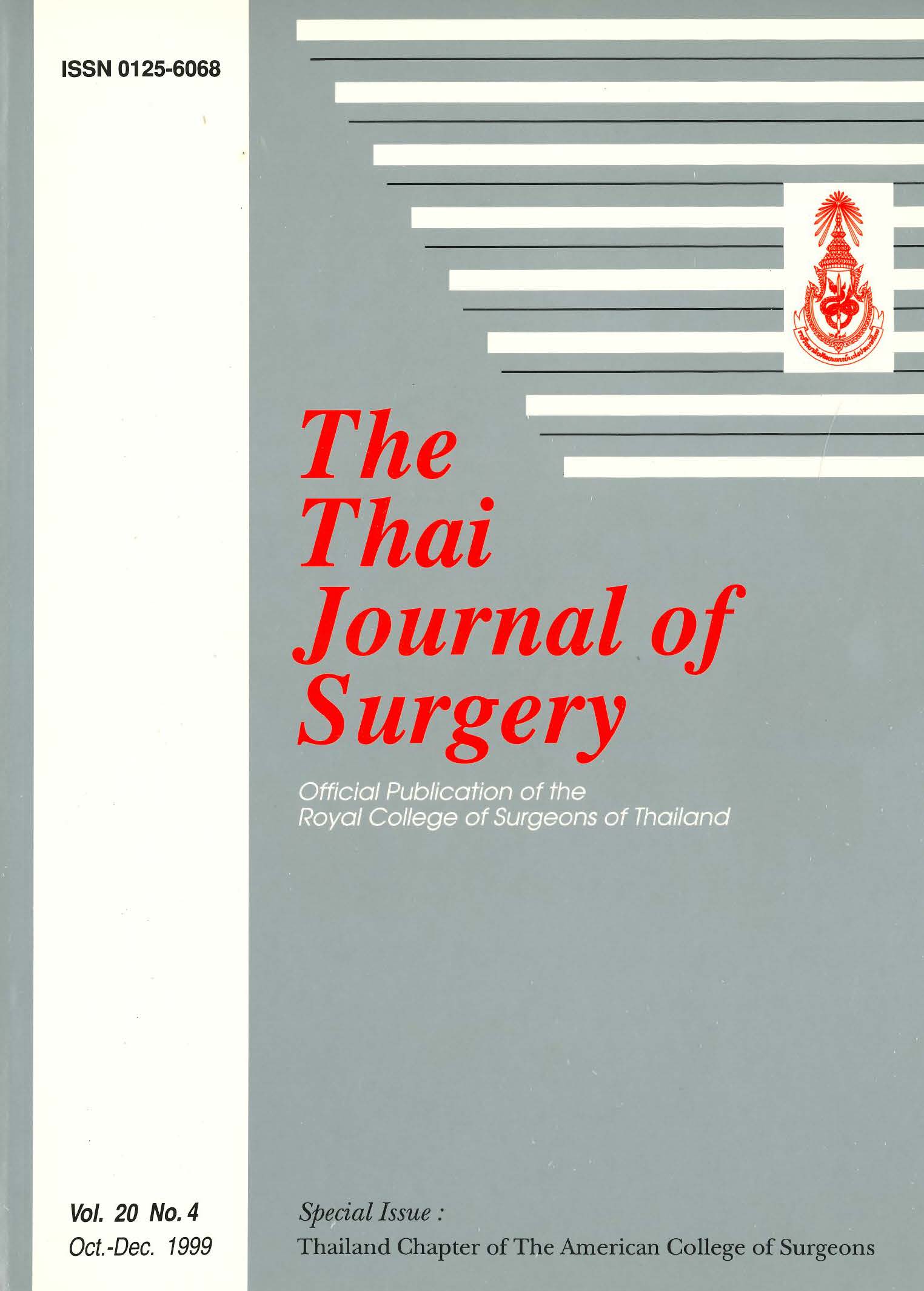Endorectal Mucosal Advancement Flap for Treatment of Complex Anal Fistula
Keywords:
complex anal fistula, treatment, mucosal advancement flapAbstract
Sixteen patients who had complex anal fistula were treated in both private and government hospitals in Chiang Mai from 1992 to 1996. They comprised 12 men and 4 women. The treatment consisted of enlarging the external opening for well drainage, curetting the tract, and separating the fistulous tract from its communication with the anal canal by using the endorectal mucosal advancement flap. Nine of 16 patients (56%) produced satisfactory results. Among the failures, the longest period of time before symptom recurrence was 8 months. The causes of failure seemed to relate to the presence of diffuse internal hemorrhoids, taut anal mucosa, and failure to remove septic tissue in the fistulous tract.
References
2. Parks AG, Stitz RW. The treatment of high fistula in ano. Dis Colon Rectum 1976;19:487-99.
3. Jun SH, Choi GS. Anocutaneous advancement flap closure of high anal fistulas. Br J Surg 1999; 86:490-2.
4. Pino AD, Nelson RL, Pearl RK, Abcarian H. Island flap anoplasty for treatment of transsphincteric fistula in ano. Dis colon Rectum 1996; 39(2):224-6.
5. Aguilar PS, Plasencia G, Hardly TG Jr, Hartmann RF, Stewart WRC. Mucosal advancement in the treatment of anal fistula. Dis Colon Rectum 1985; 28(7):496-8.
6. Oh C. Management of high recurrent anal fistula. Surgery 1983;93(2) : 330-2.
7. Lewis P, Bartolo DCC. Treatment of trans-sphincteric fistulae by full thickness anorectal advancement flaps.Br J Surg 1990;77:1187-9.
Downloads
Published
How to Cite
Issue
Section
License
Articles must be contributed solely to The Thai Journal of Surgery and when published become the property of the Royal College of Surgeons of Thailand. The Royal College of Surgeons of Thailand reserves copyright on all published materials and such materials may not be reproduced in any form without the written permission.



